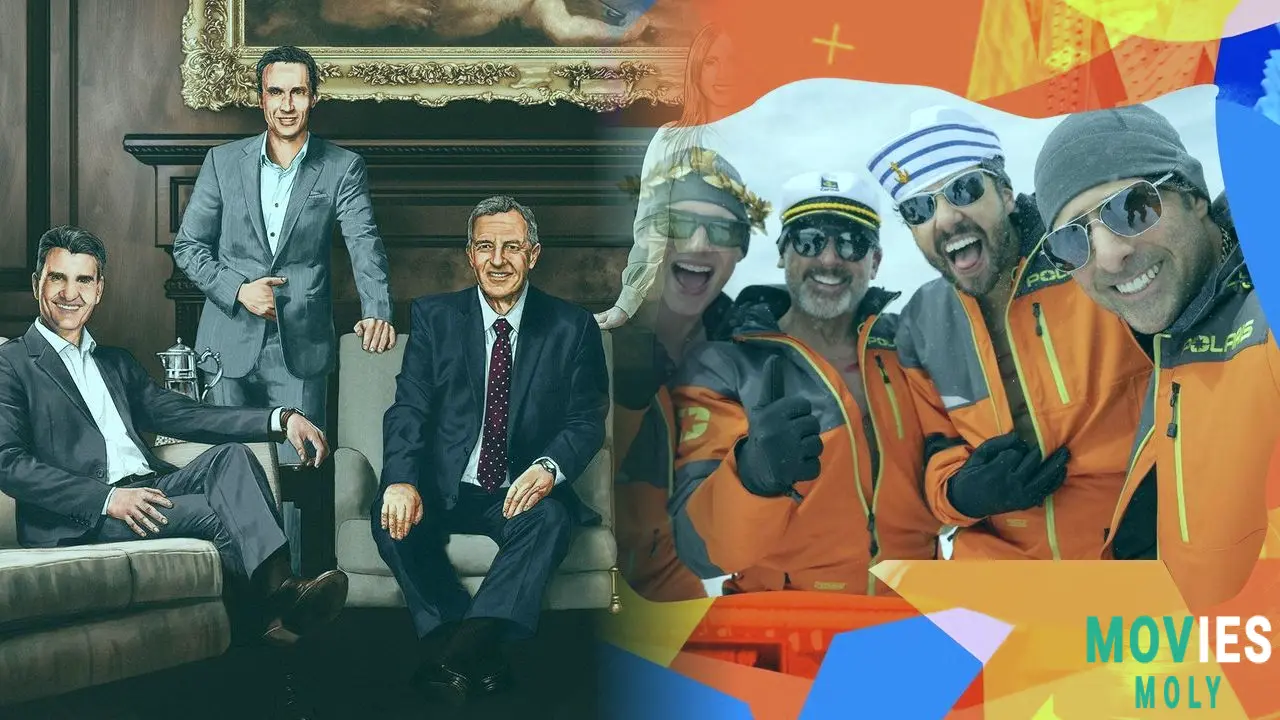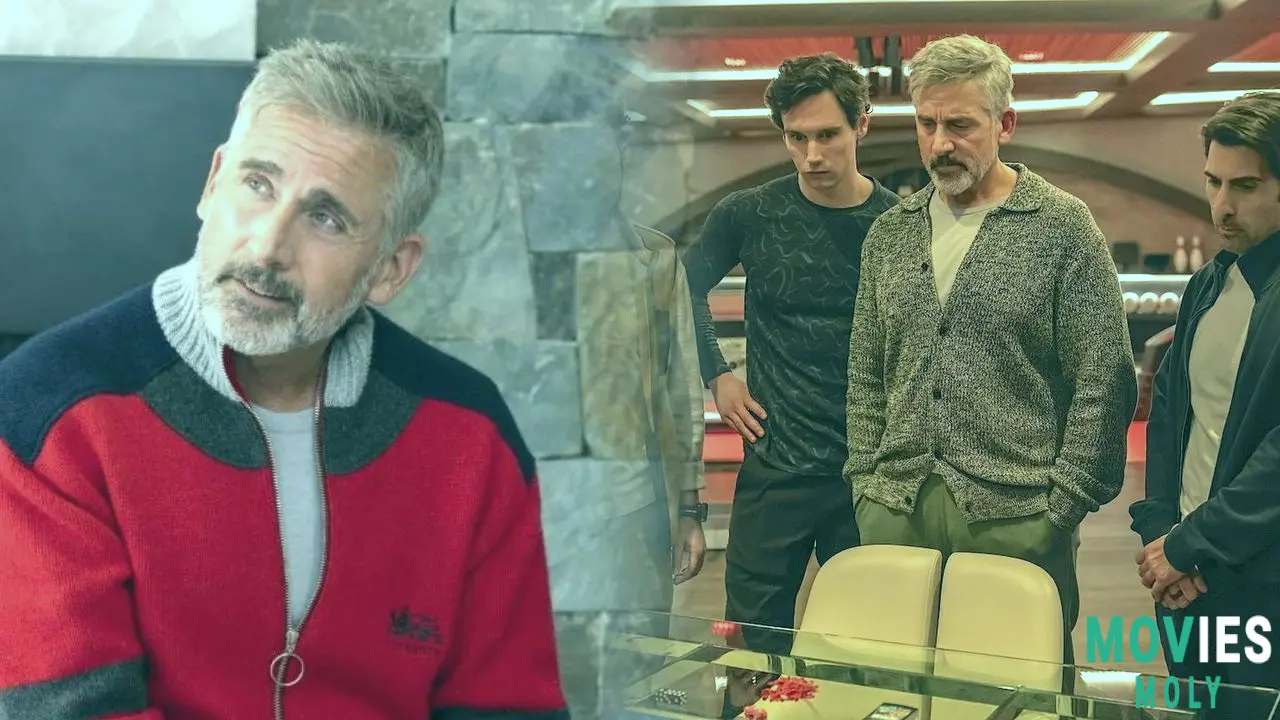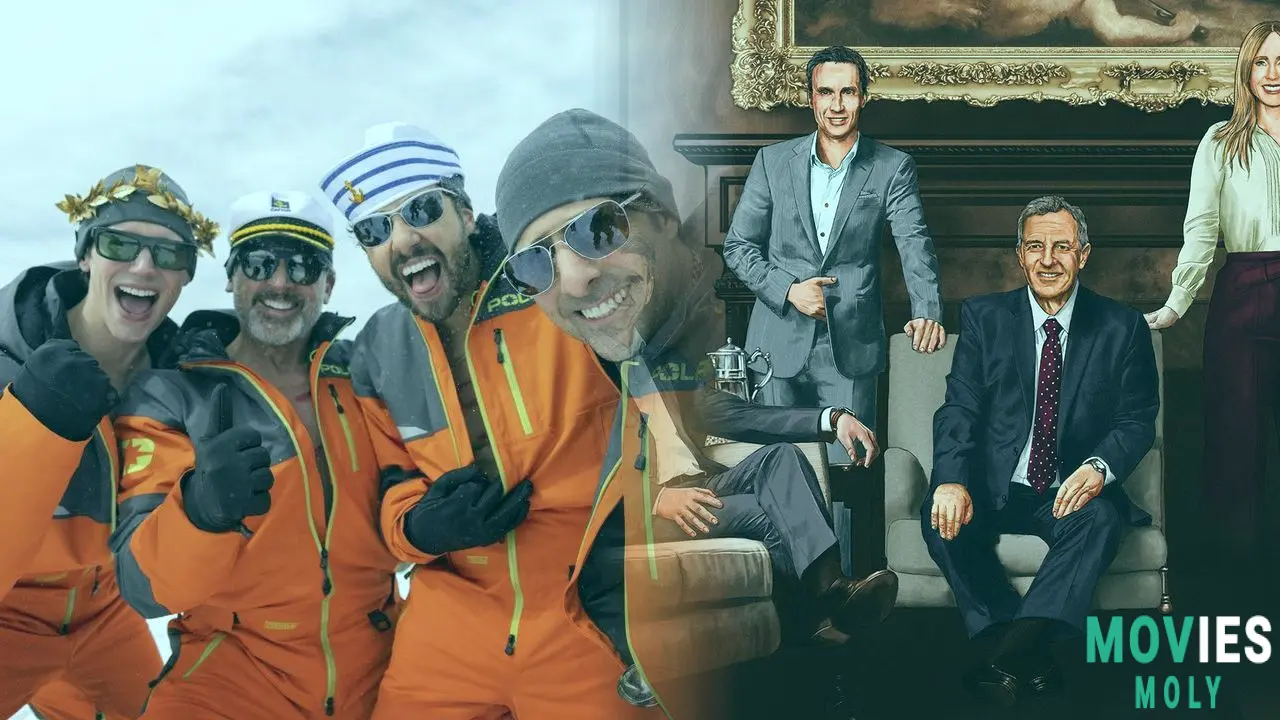If the latest drama happening in big businesses feels a lot like an episode of HBO's Succession, you are not wrong. It is for a good reason. When we see longtime company leaders pushed aside, or families fighting over control, it feels just like something the Roy family would do. These events show the messy side of family businesses and why they can go so wrong. Many of the things that made Succession such a hit show are playing out in real life right now, and it is fascinating to watch.
Kimberly Eddleston, a professor at Northeastern University who teaches about family-owned companies, shared her thoughts. She said the show's signs—"the family infighting, the dysfunction from brothers, cousins, siblings; that absolute discord, not learning from past mistakes"—all seem to be happening in places like Market Basket. The grocery chain's boardroom battle, with its chief executive Arthur T. Demoulas put on leave by his sisters, brought all the drama of the fictional Waystar RoyCo to life. These kinds of fights can often be traced back many years, just like the strained relationship between Logan Roy and his brother Ewan.
In Succession, Logan Roy (played by Brian Cox) had been at odds with his brother Ewan (James Cromwell) for a long time. That old family history became important to Kendall's plans. Similarly, the Market Basket power struggle started way back in the 1990s. The families of two Demoulas brothers, sons of the company's founder, went to court over who owned what shares. The cousins, Arthur S. and Arthur T., even got into a physical fight in court. The court eventually said Arthur S.’s side of the family had most of the control. But then, in 2008, a board member from Arthur S.’s side voted to make Arthur T. the chief executive. It makes you wonder how complicated those family ties really are.
Unpacking The Shifting Loyalties And Family Fights In The Corporate WorldWhen The Business Of Family Leads To Unexpected Betrayals And Complicated Relationships
The rivalry between the two branches of the Demoulas family really exploded in 2014. Arthur S.’s side tried to remove his cousin. Arthur T. said this was a fight between focusing on shareholder money versus lower prices and employee benefits. He ended up winning after employees walked out and customers stopped shopping there. But then the board's executive committee pushed Arthur T. out again. They said he would not work with them on money matters and a clear plan for who would take over. Two executives close to Arthur T. said the committee asked the 70-year-old chief executive not to name any of his children as his successors.
The changing loyalties in families are clear both on screen and in real companies. In Succession, Kendall was betrayed by his brother Roman. Their sister Shiv eventually chose sides against both of them. In the Market Basket situation, the same three sisters who helped Arthur T. fund the 2014 buyout against Arthur S. were the ones who pushed him out this time. "That’s a real similarity, that shows you the lack of trust between family members, and the lack of communication too," Eddleston said. "It just created all this conflict and tension." This kind of drama makes for great television, but in real life, it can cause serious problems for a business.
Eddleston mentioned that about 60 percent of family-owned businesses do not have a plan for who takes over next. Or, like in Succession, "the leader has one in his head, but doesn’t communicate it, which is just as damaging." It shows that even with all the wealth and power, these families deal with very human issues. It is easy to see how a lack of clear communication and trust can lead to big fights and instability, whether you are running a media empire or a chain of grocery stores.
Hollywood's Own Power Struggles: A Real-Life Game Of Thrones Unfolds

From Disney's Top Job To Agency Leadership, The Stakes Are High And The Players Are Many
The drama is not just happening in grocery stores. Hollywood itself is seeing many power struggles that feel straight out of a TV show. Bob Iger, Disney's current leader, recently offered some surprising advice to an executive competing to take his place: "You need to be more selfish." A source who heard the comment said Iger meant that those wanting to be the next leader must be ready to go to extreme lengths to win. This might sound strange from a leader known for being a smooth planner. But Iger has said he used a "soft autocracy" in the past to get his ideas through. He even reportedly worked against his chosen successor, Bob Chapek, for two years before his own return. Disney denies this characterization of Iger's return.
For executives like Dana Walden and Josh D’Amaro, who are trying to succeed Iger, being too aggressive can make them look desperate. You have to be always auditioning but never openly. It is a delicate balance. Hollywood publications often hear from angry public relations people when their boss slips on an executive power list. They also get upset when their boss is mentioned as a possible successor. This is because no one wants to look like they are aiming for the top before the current leader is ready to step down. It is truly Hollywood’s modern Game of Thrones. Across the entertainment world, power struggles are happening quietly for top jobs at big companies like CAA, Sony, and Lucasfilm. These fights will decide who leads Hollywood's biggest companies for years. This is all happening at a time when the industry itself feels a bit shaky, which makes the stakes even higher.
Many people feel this struggle has been coming for a long time. An article in The Hollywood Reporter mentioned a "gray ceiling" for those in their 30s, 40s, and even 50s. This means top-level executives seemed stuck in their positions, preventing younger talent from moving up. But recently, some cracks in that ceiling have appeared. Last year, a record number of chief executives stepped down across the US economy. In Hollywood, a change in generations is happening, maybe too slowly for some. This brings up questions: What will these new leaders be like? How will they compare to those before them? And how will success be measured in an industry that is always changing?
New Faces And Shifting Tides: Who Is Up For The Top Jobs In Hollywood?

The Challenges Of Leadership In A Changing Entertainment Landscape And What It Means For The Future
Some leadership changes have gone smoothly. In September, 70-year-old Sony Pictures Entertainment chief executive Tony Vinciquerra said he would step down. He was replaced by 53-year-old Ravi Ahuja. Others have been more complicated. UTA co-founder Jeremy Zimmer, 66, stepped aside as chief executive. He chose David Kramer as his successor, but not on his preferred timeline. A week later, Endeavor's huge deal with Silver Lake officially ended the era of Ari Emanuel, 64, and Patrick Whitesell, 60, running WME. Their long partnership ended badly, but their influence is still huge.
Some top jobs are still open. At Disney, of course, but also at Lucasfilm. Its chief executive Kathleen Kennedy is expected to step down soon after Iger. There is also the potential merger between Paramount and Skydance. If it happens, 71-year-old Shari Redstone will pass control to 42-year-old David Ellison. That leadership team is set, if they only had a company to run. When it comes to leaders changing, success or failure is often measured by how much chaos follows. Terry Press, president of strategy and communications at Amblin Partners, said, "Right now, with all the chaos in the industry, stability is like a drug. You want to be around it and you want to be in business with it."
Universal and Netflix have managed their leadership changes with little public drama. Netflix made two big changes in the past 15 years. Ted Sarandos became co-chief executive with founder Reed Hastings in 2020. Then, when Hastings stepped aside in 2023, chief operating officer Greg Peters became Sarandos’ co-chief executive. Some gossips thought Peters' promotion bothered Sarandos, but insiders say the two men work on different sides of the business. So there is little real tension. Few companies manage to pass the torch so smoothly.
CAA, for example, has struggled to say what its future will look like if the three main leaders choose to leave. "It’s the defining issue for the industry today, and we need to be thoughtful about it because there are repercussions," said Jeff Berg. He ran ICM from 1985 to 2012 and saw many power shifts. He noted that while the film and TV industry might be shrinking, the companies that run it have gotten bigger. "If you get succession wrong," he said, "you can’t unring that bell for a while."
The Difficult Path To The Top: Why Some Leaders Fall And Others Rise

How Personalities, External Events, And Changing Norms Shape Hollywood's Future
David Kramer, 56, patiently waited for his chance at UTA. Three years earlier, UTA outlined what a post-Jeremy Zimmer era would look like. It announced that Kramer would become the sole president. This effectively named Kramer as the next in line. It also made it clear that his friend and co-president Jay Sures, who had argued with Zimmer, would not get the top job. The question then became, when would Zimmer actually leave? A year passed. Then two. Then three, and still no clear date for Zimmer’s departure. Agents started to whisper about when he would step down.
Then something truly wild happened. Like thousands of others, Kramer, who lives in Pacific Palisades, had to leave his home because of a fire in January. He and his family stayed with Sures. They lived under the same roof for several weeks. Two months later, it was announced, seemingly out of nowhere, that Zimmer would be stepping down as chief executive. A UTA source said, "The [timeline] was executed from the bottom up. There was utter unanimity about [the plan], and David is being celebrated. Is that a coup? I don’t know. But Jeremy didn’t get to choose the moment it happened." A top agent in his late 50s added, "Power is not given. It’s seized. It’s not something that’s gently passed on, and that’s from time immemorial." This agent thinks the older generation of Hollywood leaders was more aggressive than the one that followed. "To any of the 47-year-olds out there who are wondering what the fuck happened to their careers? My response to them is: Why didn’t you push harder? Maybe this group turned out to be ill-equipped to seize it."
Or perhaps Hollywood culture has changed too much for such Machiavellian behavior. Over recent years, Hollywood has lost some of its sparkle. Many years of companies joining, a pandemic, two strikes, and a shift to streaming have resulted in a smaller industry with fewer top jobs and less money flowing around. The culture has also changed. Tech companies that use algorithms are now in charge. Data is more important than instinct and experience. Many of the qualities that used to be seen as typical of Hollywood power are now considered toxic. The people who run this town today are very different from the bold leaders who came before.
When people talk about the difficulties of choosing new leaders in a struggling industry, Jason Kilar often comes up. Kilar was named Warner-Media’s chief executive in May 2020. He had a Harvard Business School degree and a background in technology. He came in to shake things up. His two years at WarnerMedia are mostly remembered for Project Popcorn. This was the decision during the pandemic to release all of WarnerMedia’s 2021 films at the same time in theaters and on streaming. The move was meant to boost subscriptions for HBO Max. It did. But Project Popcorn came with a high price. It hurt relationships with agencies and angered top talent like Christopher Nolan. Warner is still dealing with its effects. Kilar’s bold moves and harsh consequences bring up a question: In a time of uncertainty, should Hollywood look to new outsiders or promote from within?
“Hollywood has always been much more tradition-bound than people think. It has its own rhythms,” said Rick Nicita. “If the tenet now is to move fast and break things, that’s not exactly in sync with the famous phrase ‘the past is prologue,’ which still applies to the movie business.” Barry Diller, chairman of IAC and former Paramount boss, agrees. "Hiring from the outside at the CEO level is an admission of failure. Ideally, you bring someone in early in their career and they marinate in your enterprise, gain experience and succeed whoever is senior. That’s by far the better process. Bringing in a CEO whom you don’t know, and I don’t care how many hours you interview someone, you don’t know them, is a bad dice throw and rarely works." It seems Hollywood's real-life succession struggles are just as dramatic and complex as the show we all loved. The only difference is, we are living this one in real time.




